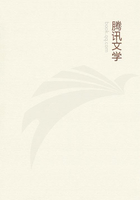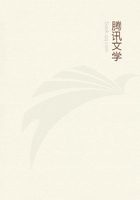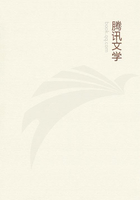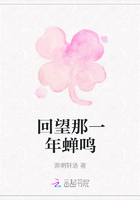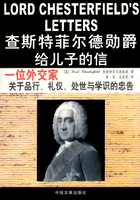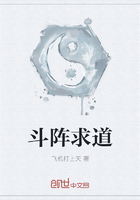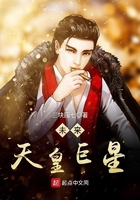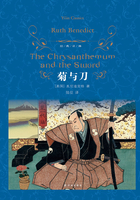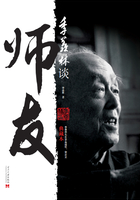They sat down. She was on the Count's right hand, with Androvsky opposite to her and Father Roubier on her left. As they took their places she and the Father said a silent grace and made the sign of the Cross, and when she glanced up after doing so she saw Androvsky's hand lifted to his forehead. For a moment she fancied that he had joined in the tiny prayer, and was about to make the sacred sign, but as she looked at him his hand fell heavily to the table. The glasses by his plate jingled.
"I only remembered this morning that this is a /jour maigre/," said Count Anteoni as they unfolded their napkins. "I am afraid, Father Roubier, you will not be able to do full justice to my chef, Hamdane, although he has thought of you and done his best for you. But I hope Miss Enfilden and--"
"I keep Friday," Domini interrupted quietly.
"Yes? Poor Hamdane!"
He looked in grave despair, but she knew that he was really pleased that she kept the fast day.
"Anyhow," he continued, "I hope that you, Monsieur Androvsky, will be able to join me in testing Hamdane's powers to the full. Or are you too----"
He did not continue, for Androvsky at once said, in a loud and firm voice:
"I keep no fast days."
The words sounded like a defiance flung at the two Catholics, and for a moment Domini thought that Father Roubier was going to treat them as a challenge, for he lifted his head and there was a flash of sudden fire in his eyes. But he only said, turning to the Count:
"I think Mademoiselle and I shall find our little Ramadan a very easy business. I once breakfasted with you on a Friday--two years ago it was, I think--and I have not forgotten the banquet you gave me."
Domini felt as if the priest had snubbed Androvsky, as a saint might snub, without knowing that he did so. She was angry with Androvsky, and yet she was full of pity for him. Why could he not meet courtesy with graciousness? There was something almost inhuman in his demeanour. To-day he had returned to his worst self, to the man who had twice treated her with brutal rudeness.
"Do the Arabs really keep Ramadan strictly?" she asked, looking away from Androvsky.
"Very," said Father Roubier. "Although, of course, I am not in sympathy with their religion, I have often been moved by their adherence to its rules. There is something very grand in the human heart deliberately taking upon itself the yoke of discipline."
"Islam--the very word means the surrender of the human will to the will of God," said Count Anteoni. "That word and its meaning lie like the shadow of a commanding hand on the soul of every Arab, even of the absinthe-drinking renegades one sees here and there who have caught the vices of their conquerors. In the greatest scoundrel that the Prophet's robe covers there is an abiding and acute sense of necessary surrender. The Arabs, at any rate, do not buzz against their Creator, like midges raging at the sun in whose beams they are dancing."
"No," assented the priest. "At least in that respect they are superior to many who call themselves Christians. Their pride is immense, but it never makes itself ridiculous."
"You mean by trying to defy the Divine Will?" said Domini.
"Exactly, Mademoiselle."
She thought of her dead father.
The servants stole round the table, handing various dishes noiselessly. One of them, at this moment, poured red wine into Androvsky's glass. He uttered a low exclamation that sounded like the beginning of a protest hastily checked.
"You prefer white wine?" said Count Anteoni.
"No, thank you, Monsieur."
He lifted the glass to his lips and drained it.
"Are you a judge of wine?" added the Count. "That is made from my own grapes. I have vineyards near Tunis."
"It is excellent," said Androvsky.
Domini noticed that he spoke in a louder voice than usual, as if he were making a determined effort to throw off the uneasiness that evidently oppressed him. He ate heartily, choosing almost ostentatiously dishes in which there was meat. But everything that he did, even this eating of meat, gave her the impression that he was-- subtly, how she did not know--defying not only the priest, but himself. Now and then she glanced across at him, and when she did so he was always looking away from her. After praising the wine he had relapsed into silence, and Count Anteoni--she thought moved by a very delicate sense of tact--did not directly address him again just then, but resumed the interrupted conversation about the Arabs, first explaining that the servants understood no French. He discussed them with a minute knowledge that evidently sprang from a very real affection, and presently she could not help alluding to this.
"I think you love the Arabs far more than any Europeans," she said.
He fixed his bright eyes upon her, and she thought that just then they looked brighter than ever before.
"Why?" he asked quietly.
"Do you know the sound that comes into the voice of a lover of children when it speaks of a child?"
"Ah!--the note of a deep indulgence?"
"I hear it in yours whenever you speak of the Arabs."
She spoke half jestingly. For a moment he did not reply. Then he said to the priest:
"You have lived long in Africa, Father. Have not you something of the same feeling towards these children of the sun?"
"Yes, and I have noticed it in our dead Cardinal."
"Cardinal Lavigerie."
Androvsky bent over his plate. He seemed suddenly to withdraw his mind forcibly from this conversation in which he was taking no active part, as if he refused even to listen to it.
"He is your hero, I know," the Count said sympathetically.
"He did a great deal for me."
"And for Africa. And he was wise."
"You mean in some special way?" Domini said.
"Yes. He looked deep enough into the dark souls of the desert men to find out that his success with them must come chiefly through his goodness to their dark bodies. You aren't shocked, Father?"
"No, no. There is truth in that."
But the priest assented rather sadly.
"Mahomet thought too much of the body," he added.
Domini saw the Count compress his lips. Then he turned to Androvsky and said:
"Do you think so, Monsieur?"

